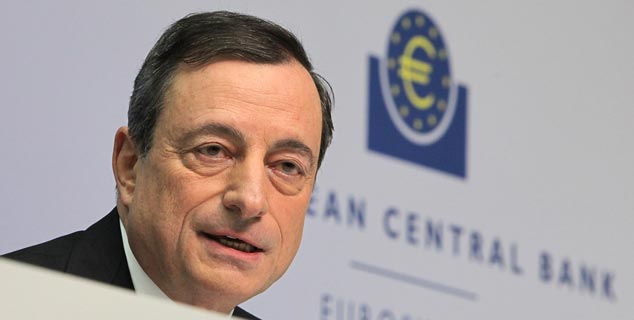
We talked about recovering oil prices in Money Morning yesterday.
The battle between oil cartel Opec and US shale producers is having a major effect on anyone involved in the oil sector, of course.
But the volatility of the oil price is being felt well beyond the oil patch.
An arguably even more important asset class is feeling the pain too: the bond market.
How the bond market works, in a nutshell
Bond markets have had a rough few weeks. Yields are up and prices are down.
Most investors are more familiar with shares than they are with bonds. So I’ll keep this basic – forgive me if you’re already comfortable with all the jargon.
A bond itself is just an IOU. It’s a loan. You loan money to a government or a company and they commit to paying you back at a date in the future. In the meantime, they pay you interest (in the form of a ‘coupon’) on the loan.
The interest rate (‘yield’) you want will depend on a few things. Firstly – how much risk is there that they won’t pay you back? If the answer is ‘none’ or ‘very little’, you’ll be content with a lower yield. If the answer is ‘a lot’, you’ll want a higher yield. This is why German government bonds yield an awful lot less than Greek government bonds.
Secondly, how much yield do you need to make a ‘real’ (after-inflation) return? If you lend money to someone, you want to make a profit as a reward for that risk. If inflation means that the total sum of money you get back is worth less than when you loaned it out, that’s pointless.
So bonds matter because, ultimately, it’s the bond market that dictates the cost of borrowing in the economy. Central banks influence this heavily by setting interest rates and buying and selling bonds, but the key word there is ‘influence’ as opposed to ‘control’.
If investors expect inflation to be low or negative, they’ll accept lower yields on bonds (so they’ll be willing to pay more for them). If inflation looks set to rise, they’ll look for higher yields (so they’ll be willing to pay less for bonds).
That’s your bond market in a nutshell.
Why are bond yields so low right now?
The tricky thing just now is that bond yields have been driven to incredibly low levels. In many cases – particularly in Europe – yields have turned negative. In other words, investors who plan to hold to maturity would be accepting a guaranteed loss. They would be paid back less than they had loaned out.
That’s a weird situation. It’s partly because investors are concerned that deflation will mean that £100 in a year’s time will be worth more than £100 now, and so they’re willing to take that loss, because in ‘real’ terms their money will maintain its value.
But much of it is down to artificial factors. Investors have tried to get in ahead of European Central Bank bond-buying, knowing they’re flogging assets to a price-insensitive buyer. There are various ‘forced’ buyers in the bond market, like pension funds and banks who want ‘safe’ assets. And in some cases there’s even currency speculation going on.
Anyway – when bond yields are low, that means borrowing costs are too. And it also makes other investment assets look cheap in comparison – even if they’re expensive compared to history.
However, if bond yields were to shoot up, suddenly a lot of other assets would look expensive.
The risk is, that’s what we might be seeing now.
Are investors waking up to a bubble in bonds?
In recent weeks, bond yields have started rising again. People are scrabbling to explain why.
A recovery in the oil price has eased concerns about deflation. Signs that China is trying to boost its economy with cheaper money have also helped. Improving eurozone economic data has also made investors question whether the state of the global economy is really bad enough to justify negative bond yields.
But as much as anything else, it might just be that people are waking up to the fact that bonds are trading at ridiculously high prices (and ridiculously low yields). A couple of weeks ago in MoneyWeek magazine, James Ferguson warned that a ‘perfect storm’ might be approaching for the bond market. Could this be it?
My experience of bubbles is that when they finally pop, they tend to pop fast. The difference is that bubbles are often in small pockets of the market – cupcake makers, or even dotcom stocks. A bubble in bonds could be a lot more damaging.
Then again, if bond yields are rising because the global economy is genuinely improving, that could create some interesting opportunities in select sectors. We’ll be looking at how to protect yourself and profit in future issues of MoneyWeek magazine – if you’re not already a subscriber, get your first four issues free here. Meanwhile, it’s worth hanging on to your gold as portfolio insurance.
• This article is taken from our free daily investment email, Money Morning. Sign up to Money Morning here.